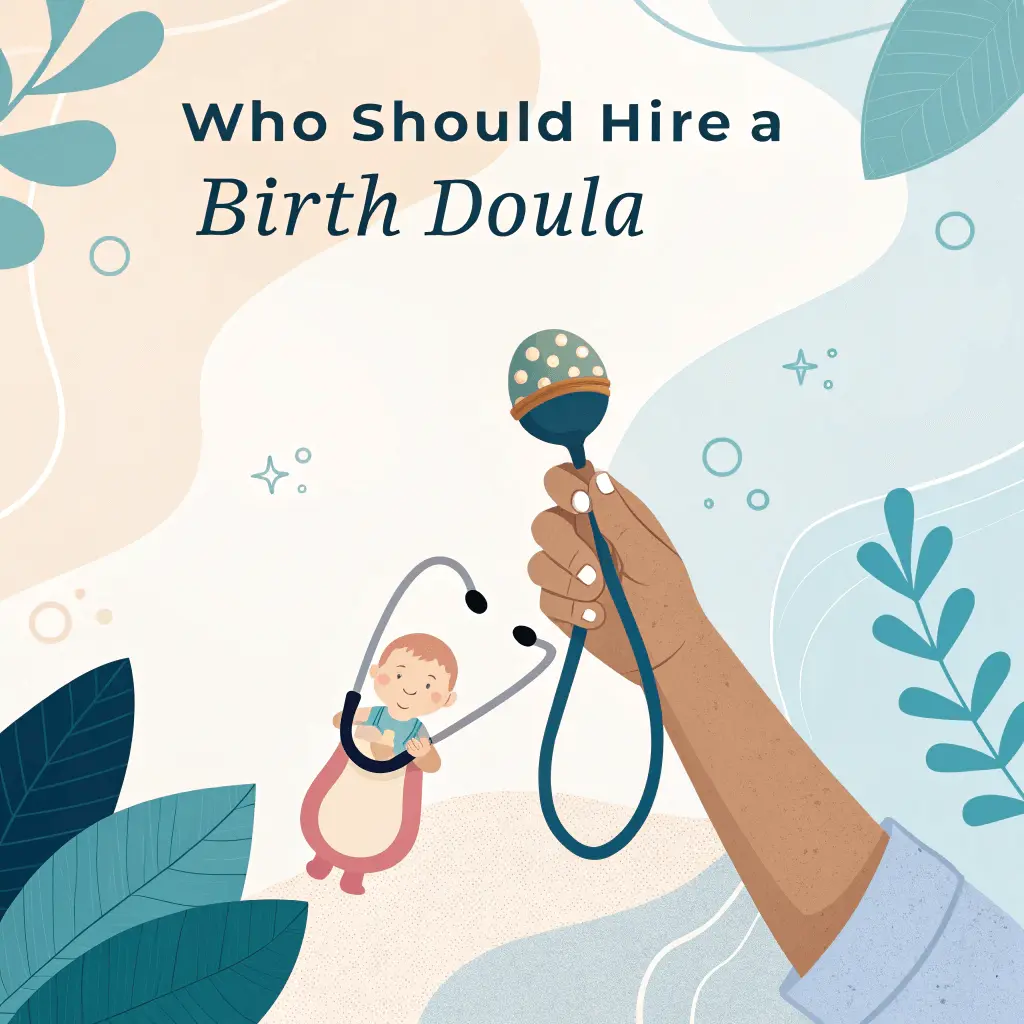
Who Should Hire a Birth Doula
Bringing a new life into the world is one of the most profound experiences a person can have. For many expectant parents, the journey of pregnancy and childbirth comes with a mix of excitement, fear, uncertainty, and hope. Navigating this complex emotional and physical experience often calls for support beyond what a medical team or even loved ones can provide. This is where a birth doula can play a transformative role.
A birth doula is a trained professional who provides continuous emotional, physical, and informational support to a birthing person before, during, and shortly after childbirth. Unlike midwives or doctors, doulas do not provide medical care, but their presence can significantly improve birth outcomes and experiences. The question many people ask is: Who should hire a birth doula?
The answer is both simple and nuanced. While almost anyone expecting a baby can benefit from a doula’s support, certain individuals and situations especially make a strong case for hiring one. In this article, we’ll explore various groups of people who might particularly benefit from hiring a birth doula, along with the reasons why this support can be invaluable.
1. First-Time Parents
Perhaps the most obvious group that can benefit from hiring a birth doula is first-time parents. Entering childbirth without any prior experience can be daunting. Questions abound: How will I handle the pain? What if something goes wrong? Will I know when labor really starts?
A doula acts as a reassuring guide through the entire process, helping first-time parents understand what to expect during labor and birth. They also help prepare for the unexpected. From developing a birth plan to offering breathing techniques and emotional support during contractions, doulas ease anxiety and provide stability. This is especially helpful when unfamiliar medical procedures are discussed, as doulas help interpret medical language and ensure the birthing person feels informed and empowered.
2. People with High Anxiety or Fear Around Childbirth
For individuals with a high level of fear or anxiety about childbirth—sometimes diagnosed as tokophobia—a doula can be a game-changer. Whether the fear stems from personal trauma, anxiety disorders, or fear of hospitals, doulas provide calm, steady presence and reassurance.
These individuals may need more than what partners or hospital staff can realistically offer in a clinical setting. A doula is trained to provide emotional comfort and grounding, which helps reduce stress hormones during labor and create a more positive birthing environment.
3. Those Seeking an Unmedicated or Natural Birth
If someone is hoping for a natural birth without medical interventions such as epidurals or cesarean sections, a doula can be a powerful advocate and ally. Doulas are well-versed in comfort measures like massage, acupressure, movement, and positioning that help manage labor pain naturally.
They also encourage the birthing person to remain focused and confident in their choices. In the face of hospital protocols or suggestions of intervention, a doula can help ensure the birth plan is honored to the greatest extent possible, always keeping the birthing person at the center of decision-making.
4. Those Planning a Home Birth or Birth Center Delivery
People choosing home births or birth center deliveries often want a more personalized, holistic approach to birth. While midwives provide excellent medical care in these settings, their role is primarily clinical. A doula complements this by providing non-medical support, helping create a calming atmosphere and assisting the birthing person emotionally and physically.
In less clinical settings, doulas help ensure everything runs smoothly by anticipating needs, communicating with the birth team, and supporting both the laboring person and their family.
5. Individuals with Limited Partner or Family Support
Not everyone has a supportive partner or family nearby to help during labor. In some cases, the birthing person may be single, separated, or their loved ones may live far away. For these individuals, a doula can serve as a steady support system, making sure they’re not alone during labor.
Even when partners are present, some may feel unsure of how to help effectively during childbirth. A doula doesn’t replace the partner, but enhances their ability to provide support. They can guide the partner in offering physical comfort or taking breaks when needed, ensuring that both individuals feel supported.
6. People with Previous Traumatic Birth Experiences
Individuals who have experienced a traumatic birth in the past—whether due to complications, poor communication, or a loss of control—may carry emotional wounds into their next pregnancy. A doula can help them reclaim a sense of agency and confidence.
Working with a doula before labor begins allows time to process the previous experience, address fears, and develop a personalized plan for emotional safety and support during the next birth. Doulas are trained to create a birth space that feels safe, empowering, and centered around healing.
7. LGBTQ+ Families
For LGBTQ+ families, navigating pregnancy and childbirth can involve unique emotional, social, and sometimes medical considerations. A birth doula with experience or training in supporting LGBTQ+ clients can help create an inclusive and affirming environment during the birth process.
Doulas can also help advocate for the family’s wishes with healthcare providers and ensure that gender identities and family structures are respected throughout the birthing experience.
8. People with High-Risk Pregnancies
While doulas do not provide medical care, they can still be immensely helpful for individuals experiencing high-risk pregnancies. Complications such as gestational diabetes, hypertension, or advanced maternal age can add complexity and stress.
A doula in this context provides emotional grounding, helping the birthing person manage the stress and communicate effectively with their medical team. They also help ensure that even in high-risk scenarios, the person giving birth feels seen, heard, and in control of decisions.
9. Planned Cesarean Births
Many people are surprised to learn that doulas can support planned cesarean births as well. Though the birth process is surgical in this case, the emotional and physical experience is no less significant.
Doulas can prepare the birthing person and their family ahead of time for what to expect, offer calming techniques before surgery, and provide comfort and advocacy during recovery. After the cesarean, they can assist with early bonding, breastfeeding, and postpartum support.
10. People Wanting More Continuity of Care
In most hospitals, the nursing staff and even attending doctors may change shifts during a long labor. This means that the people physically and emotionally supporting the birthing person may vary throughout the process.
A doula offers consistent, continuous support, which can be deeply reassuring. From early labor through birth and immediate postpartum, the doula stays present, often becoming the one constant face and voice amidst a rotating medical team.
11. Parents Who Value Informed Decision-Making
Some expectant parents are deeply committed to making informed, conscious choices during labor but feel overwhelmed by medical jargon, differing opinions, and time-sensitive decisions. A doula can help translate options and provide balanced, evidence-based information so that the birthing person can make choices with clarity and confidence.
Rather than pushing an agenda, doulas support the individual’s goals and help advocate for their preferences within the birth setting.
12. Those Who Prioritize a Positive Birth Experience
Ultimately, anyone who values a positive, supported, and empowered birth experience may consider hiring a doula. It’s not about whether someone is “strong enough” to give birth without one—it’s about feeling safe, seen, and supported during a deeply vulnerable and powerful time.
Even in the most medically straightforward births, emotional support can make a significant difference in the perception of the birth experience. Many studies show that people who have continuous labor support report more satisfaction with their birth, experience fewer interventions, and recover more easily both physically and emotionally.
Final Thoughts
The decision to hire a birth doula is a personal one, and there’s no one-size-fits-all answer. However, the benefits of doula support are wide-ranging and well-documented. Whether you’re a first-time parent, recovering from a difficult previous birth, planning a natural delivery, or simply looking for emotional reassurance and guidance, a doula can play a vital role in your journey.
Hiring a birth doula isn’t just about making labor easier—it’s about making it more meaningful. It’s about ensuring that the person giving birth feels respected, empowered, and emotionally supported, no matter what the circumstances. If that resonates with you, then yes—you might be someone who should hire a birth doula.



